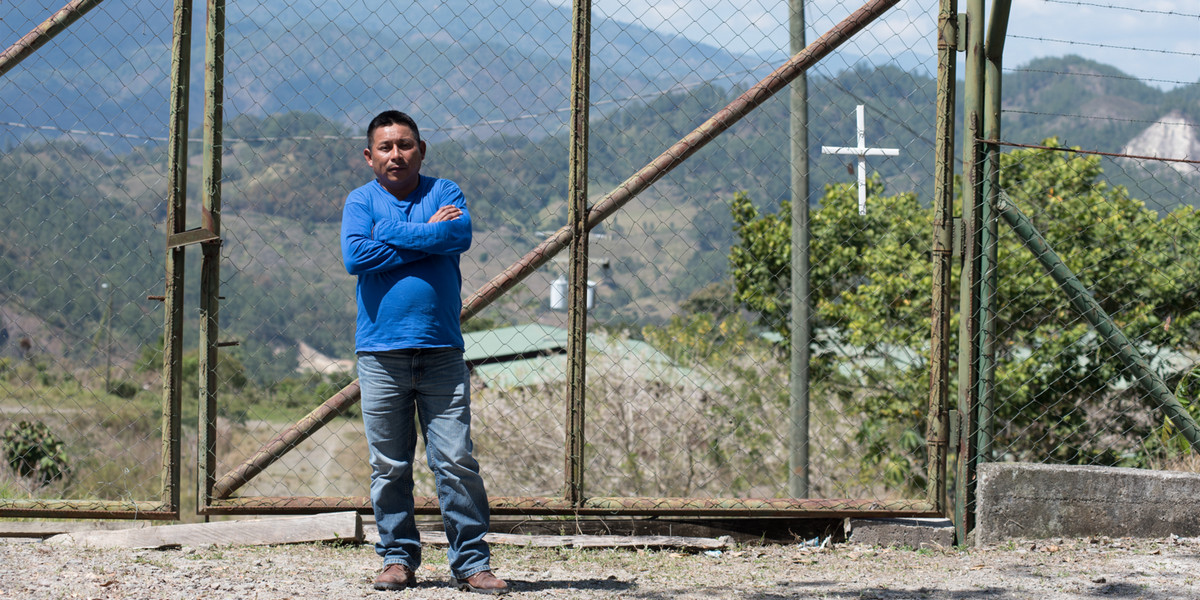“Catholic social justice organisations advocate for a strong UN Treaty to address corporate impunity in the Global South”
A new CIDSE analysis of the draft UN legally binding instrument on business and human rights highlights areas for improvement in human rights, environment and climate change, access to Justice, due diligence, legal liability, and trade and investment policies. CIDSE calls on Member States to address these gaps in the upcoming negotiations.
CIDSE, the international family of Catholic social justice organisations, publishes today an analysis of the UN Updated Draft of the Legally Binding Instrument (LBI)that will form the basis for negotiations at the 9th session of the UN open-ended Intergovernmental working group (OEIGWG) on transnational corporations and other business enterprises with respect to human rights (Geneva, 23-27 October 2023).
The analysis – available in English, French, and Spanish – includes specific recommendations to negotiators for textual revisions in Geneva, where CIDSE will be present with a delegation. The 9th session will be crucial in addressing the impacts of corporations, particularly transnational ones, on people and the planet, as vulnerable populations and the climate crisis cannot wait any longer.
While the Updated Draft of the LBI contains some improvements and useful clarifications, the analysis, written by Prof. Dr. Markus Krajewski, Stephanie Regalia and Otgontuya Davaanyam of the School of Law at the Friedrich-Alexander University of Erlangen-Nürnberg in Germany for CIDSE, shows that the changes make the text less ambitious and that it retains provisions and approaches previously considered problematic from earlier drafts. Some of the most important omissions highlighted in the analysis are:
- Human rights, environment and climate change: the Updated Draft falls short of previous drafts in addressing the issues of environmental damage and climate change. This is reflected in the deleted formulations of the right to a safe, clean, healthy and sustainable environment and on environmental and climate impact assessment in the texts of the Updated Draft. It is crucial that the OEIGWG considers theinextricable linkbetween the environment and human rights, and makes this explicit in the text.
- Access to justice and remedy: while the maintenance of an explicit reference to the reversal of the burden of proof in the Updated Draft is welcome, it is not made a necessary requirement; more specificity in the LBI would be useful to ensure that the reversal of the burden of proof is applied in civil matters, not just in criminal matters where the presumption of innocence (or equivalent principle) is a fundamental requirement of the rule of law. The possibility of group actions is a positive step forward.
- Due diligence:the due diligence process refers to a two-way, continuous engagement that should be conducted with careful consideration of stakeholders’ perspectives. The provisions of the Updated Draft are insufficient and must be strengthened to ensure meaningful and effective participation of all relevant stakeholders.
- Legal liability: the ability to hold companies liable for human rights abuses arising from their business activities has been one of the most debated provisions within the various drafts and the increased reference to domestic law qualifiers under the Updated Draft reflects the difficulty among States to agree on unified liability rules, given these typically vary significantly across legal systems. The Updated Draft represents a step back, by allowing States Parties to modify domestic legal principles to qualify their compliance with liability requirements.
- Trade and investment policies: the Updated Draft fails to include the possibility and obligation of States to undertake ex ante Human Rights Impact Assessments (HRIAs) of trade and investment agreements before the beginning of negotiations and before their ratification, to draft investment and trade agreements in a human rights-compatible way – including effective human rights and sustainability provisions – and to revise existing agreements.
“A strong UN Binding Treaty on Business and Human Rights is key to oblige corporations to respect human rights and the environment worldwide and guarantee access to remedy and reparations for people and communities affected from exploitation.This legal analysis recommends necessary improvements in the Updated Draft text. The urgency is clear: vulnerable populations, the environment, and the climate crisis cannot wait any longer. Member States must step up their engagement to ensure justice for affected communities”, says Josianne Gauthier, CIDSE Secretary General.
In his Apostolic Exhortation,Laudate Deum, released in October 2023, Pope Francis reminds us of the urgency of climate change, and highlights our moral responsibility to ‘reconfigure multilateralism.’ [37]. We urge the UN to take the opportunity that this Treaty offers to contribute to this process.
NOTES TO THE EDITORS:
- The Updated Draft of a Legally Binding Instrument on business and human rights will be discussed at the 9th session of the UN open-ended Intergovernmental working group (OEIGWG) on transnational corporations and other business enterprises with respect to human rights (Geneva, 23-27 October 2023).
- A CIDSE delegation with representatives from its member organisations and partner organisations from Africa and Latin America, will be in Geneva for the 9th Session of the OEIGWG.
MEDIA CONTACTS
- Giorgio Gotra, Interim Communications Manager, CIDSE (gotra(at)cidse.org)
- Marta Isabel González Álvarez, Manos Unidas (tec.campanas(at)manosunidas.org)
ON SITE CONTACTS IN GENEVA
- Josianne Gauthier, CIDSE (gauthier(at)cidse.org)
- Wies Willems, Broederlijk Delen (Wies.Willems(at)broederlijkdelen.be)
- Clara Alibert, CCFD-Terre Solidaire (Clara ALIBERT (c.alibert(at)ccfd-terresolidaire.org)
- Ingrid Pintaritsch, DKA-Austria (Ingrid.Pintaritsch(at)dka.at)
- François Mercier, Fastenaktion (mercier(at)fastenaktion.ch)
- Armin Paasch, MISEREOR (Armin.Paasch(at)misereor.de)
- Sorcha Tunney, Trócaire (Sorcha.Tunney(at)trocaire.org)
Cover photo: Community leader Francisco Javier Sanchez Garcia stands where protester Tomas Garcia was killed. Tomas Garcia was shot by the Honduran military at a protest at these gates to the operations base of the company DESA. The Rio Blanco community have opposed the Agua Zarca hydro-electric dam. They say that their river, sacred to their community, will be damaged by the construction of the Agua Zarca dam, and that they will not benefit economically from its construction. They say they were not consulted and did not consent to the project. (2019). Credit : Garry Walsh / Trócaire

